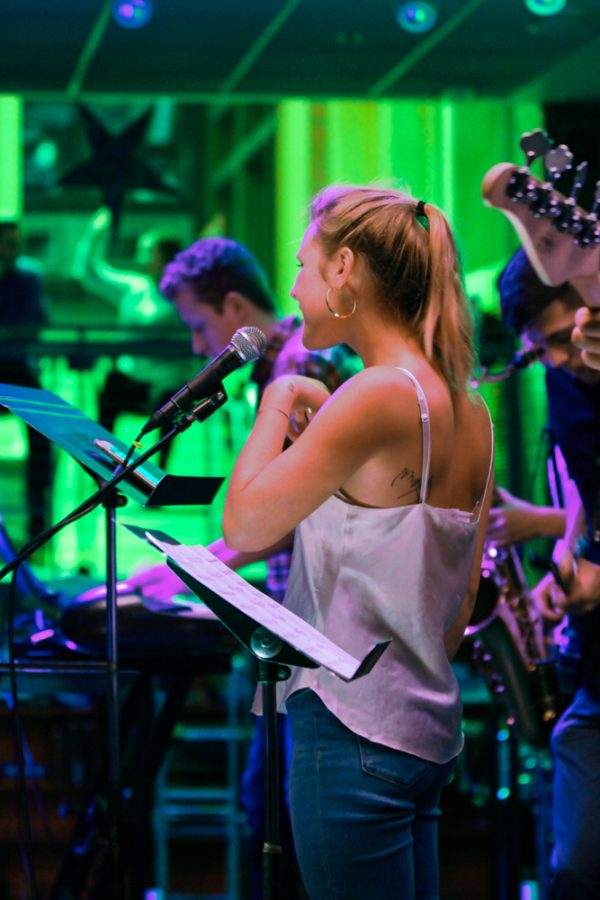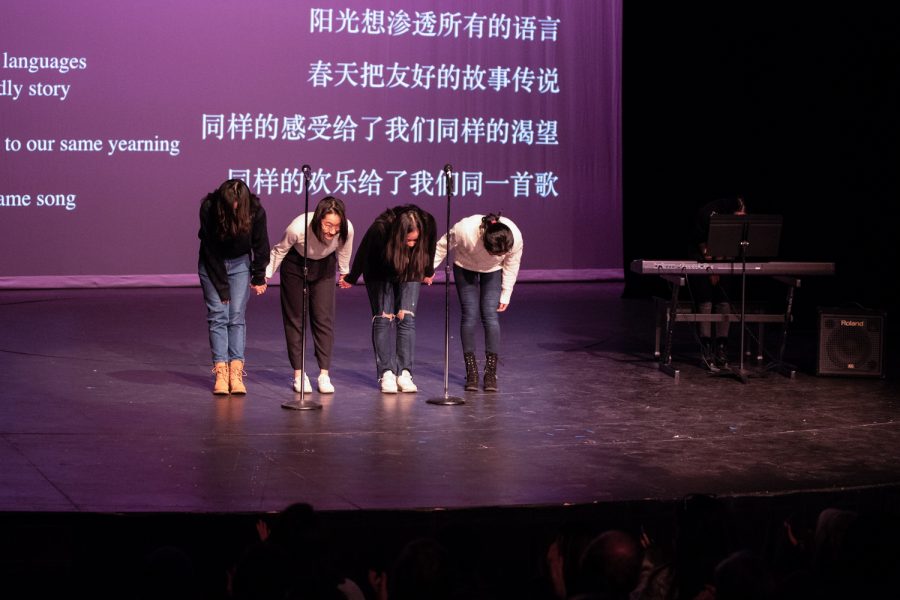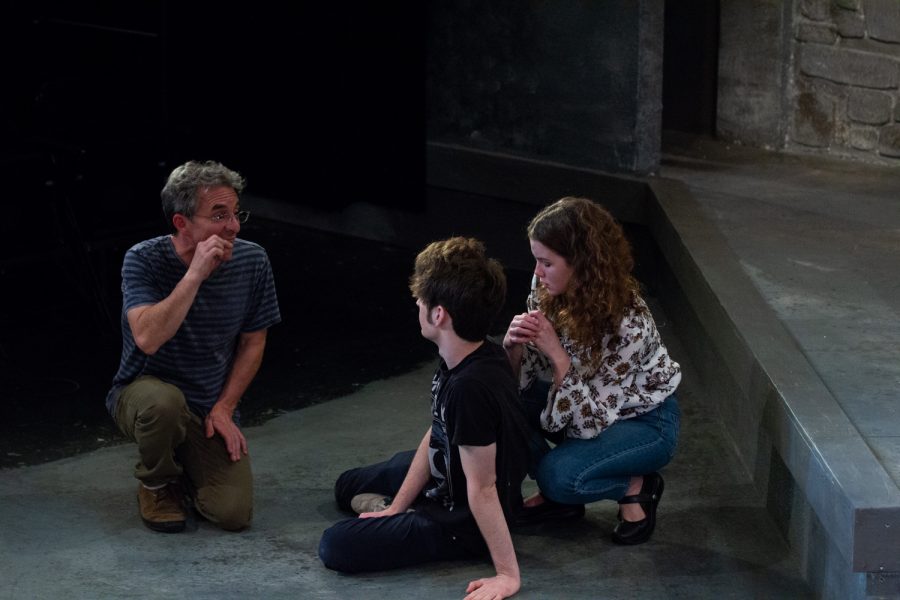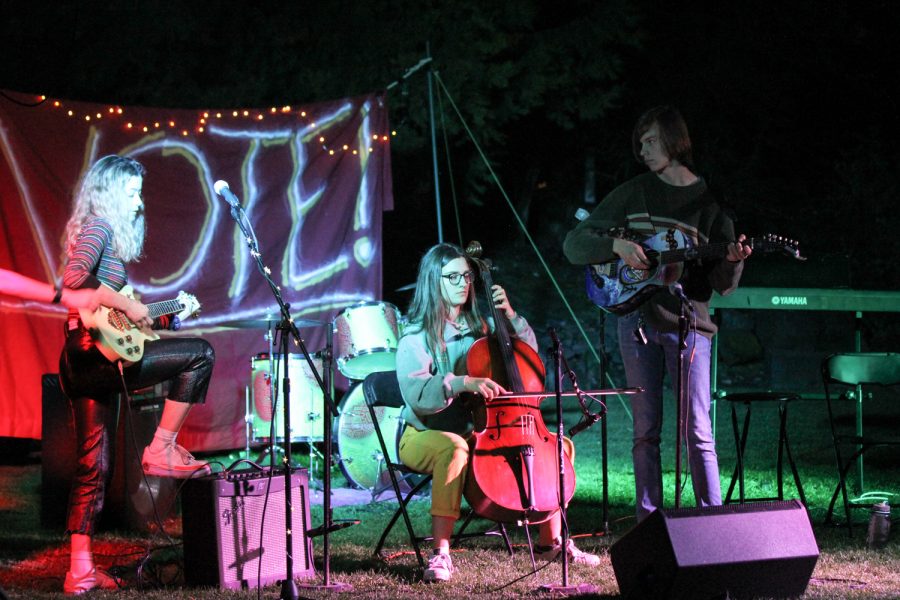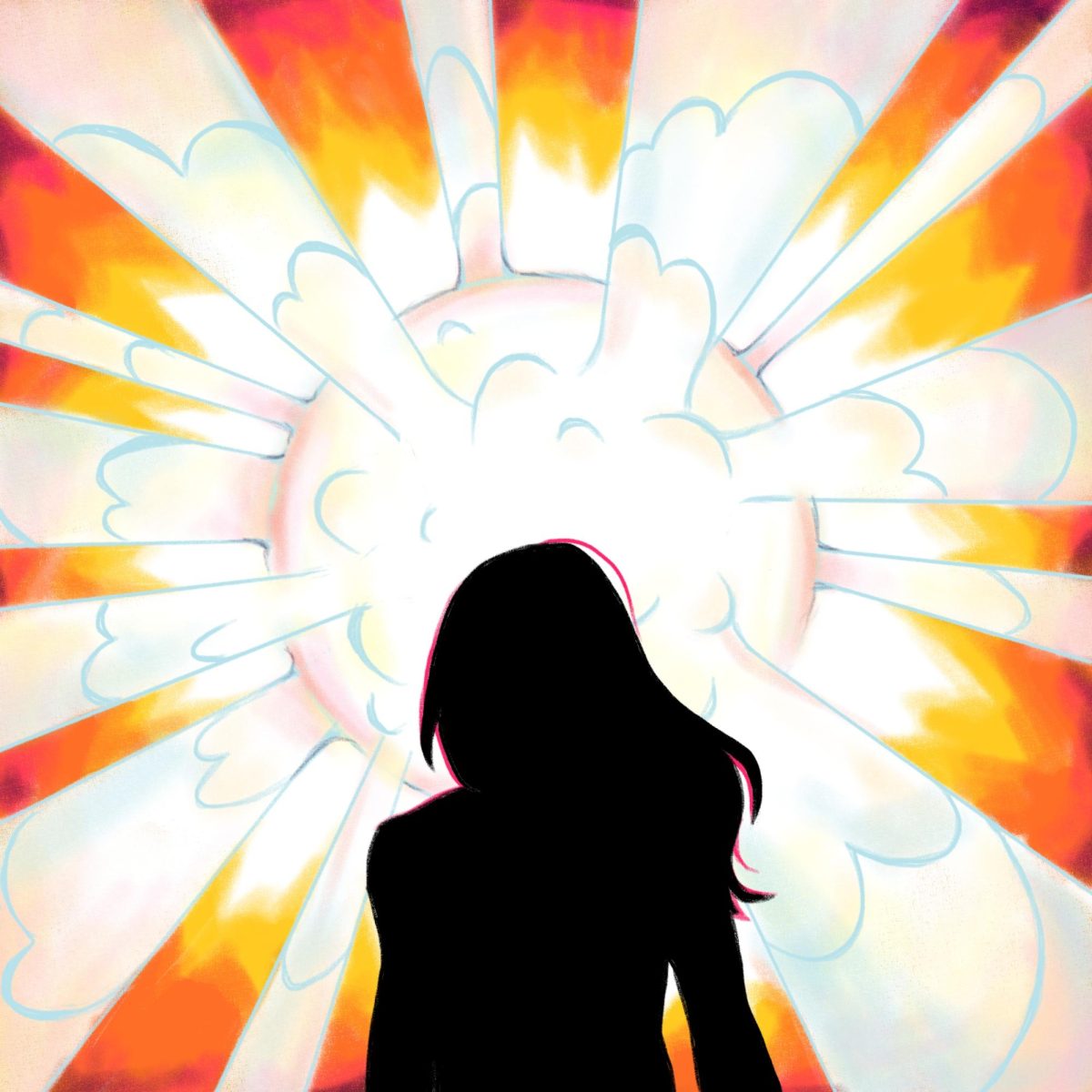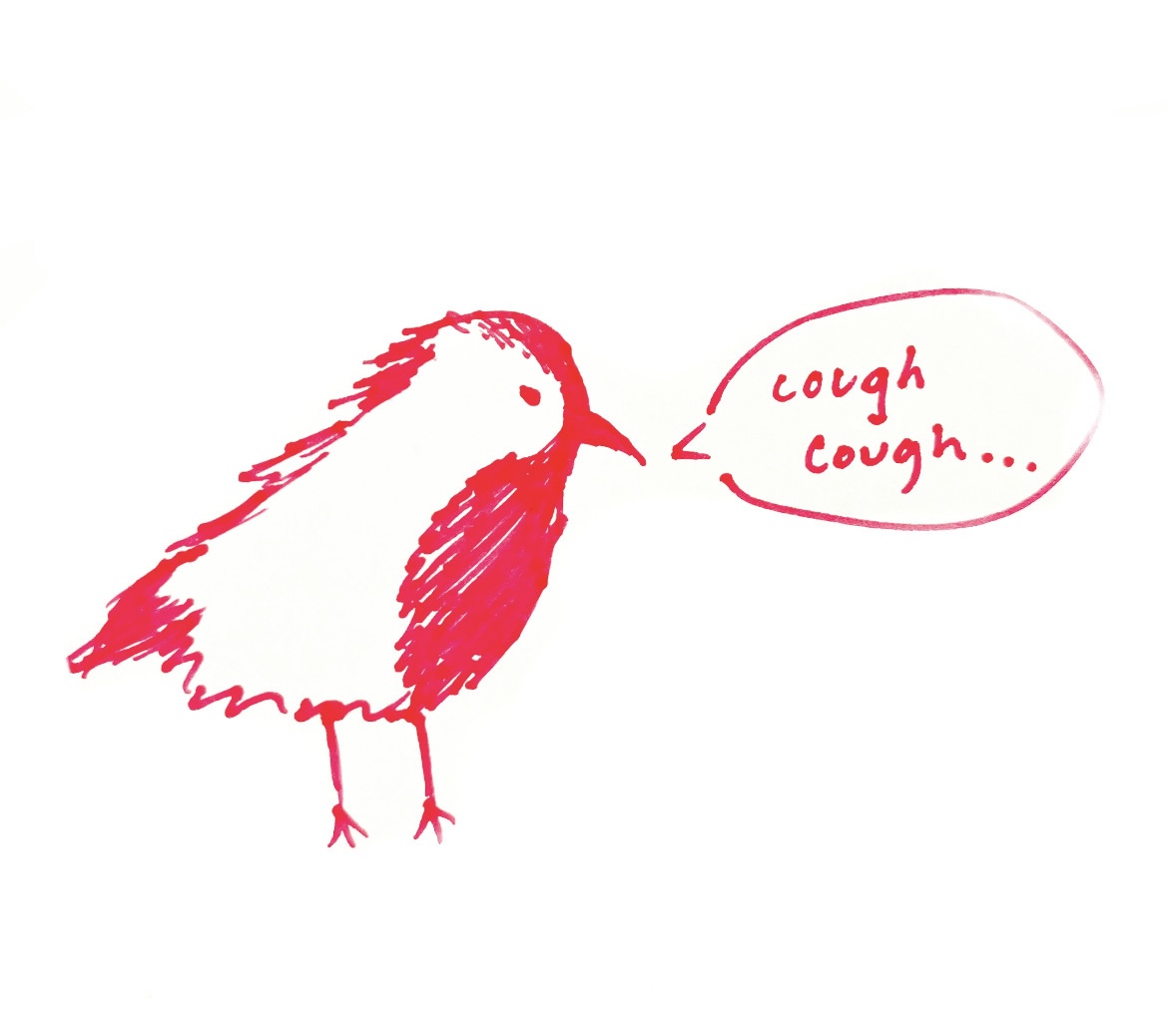
Ensconced behind the soundboard in the cozy KWCW studio, it’s easy for a college DJ to imagine that nobody is actually listening. Few Whitties own radio sets, and while friends and family might be persuaded to tune into the webstream on occasion, the studio phones rarely light up. For good reason––KWCW’s largest listener constituency doesn’t have easy access to telephones.
But the often-forgotten listeners over at the Washington State Penitentiary do have access to the postal service, and sometimes initiate snail-mail correspondence with the DJs of their favorite shows. This trend has been explored in past years entirely through the eyes of KWCW programmers, but now for the first time, The Circuit spoke to inmates directly on the role of the station in their lives.
“I’ve been here at W.S.P. for going on seven years and know firsthand the support and dedication the inmates in all custody levels have for KWCW, as well as that which KWCW has for us,” wrote Erik Dickson.
Inmates chimed in on their favorite programs in the current schedule.
“Y’all have helped me so much just by having all the great shows over the years . . . a big reason I started listening to KWCW was the diversity in musical genres that are represented there. A few of my favorite shows are ‘Slovakian Textiles,’ ‘Chappy Hour,’ ‘Sparkle Motion’ and ‘Musitronics.’ I used to listen to ‘Shadow in the Night,'” said Christopher Olsen.
Pablo Marquez, who wryly referred to himself and other inmates as KWCW’s “captive audience,” also discussed his desire to connect through music and art to the outside world “beyond the razor wire.”
“In the past I used to listen to your station a lot. Even now I still get my inner demons off by the nuclear-brutal guitars of heavy metal music from that seductive cesspool I love called ‘The Morgue.’ It sucks that their show only lasts an hour. I really see them having a promising future. They deserve more air-time . . . it [wasn’t] till I heard them that I realized that my mistress’s name was metal!” wrote Marquez. “But that’s just my take on ‘The Morgue.’ I love all kinds of music. I’m very open-minded on what I listen to. I also listen to Chicano-Rap (hell, I even write it and flow it!), R&B, oldies, classic rock and that new pop stuff you hear on the radio. I love listening to talk shows that are funny, hearing talk shows that are controversial––that deal with real-life topics with passionate people who believe in their views.”
KWCW community programmer Patrick Keenan, also known as “Ziggy Sawdust” and formerly a co-host of “The Morgue,” described his varied correspondence with inmates.
“When I was a regular cast member on ‘The Morgue,’ I was included in six years’ worth of letters,” said Keenan. “Since I started ‘The Art Of Metal’ on my own, I’ve had six different inmates write me over the past two and a half years, some only once but the rest multiple times, having known me from ‘The Morgue,’ with one John Anderson who writes almost weekly and actually does influence some of my programming.”
Letters are a way, albeit time-consuming, of forging contact with the outside world, since calling the station directly is generally not possible for inmates. One inmate reminisced over a time when contact was easier.
“Back in ’97 when I started my time here at Walla Walla Pen, we use to listen to the Saturday rapp nights and record the latest cutts . . . they use to accept our collect calls to give shout-outts and requests [sic],” wrote Bennie Shell.
Keenan elaborated further on the inmate correspondence he receives for his show.
“Overall, the letters are as different as the inmates themselves,” said Keenan. “Sometimes they’re only a paragraph or two, sometimes six pages long. They let me know why they enjoy the show, what they like and have criticisms of some of the things I do . . . I had what I called ‘Story Time’ for a while and read chapters from the ‘Politically Correct Bedtime Stories’ for something fun to do. I got a letter from an Alex Rogers who said at one point in his letter, ‘. . . about that story time bit, what’s up with that? We ain’t kids. We don’t really need story time, we need your bad ass music.’ And it’s good for the show too, because it makes it more real for everybody when I read their letters and actually interact with them as people while I’m on air answering their questions or just catering to their requests and, sometimes, demands. Mostly the letters are full of respect and praise for what I do and express that what I do makes their lives more tolerable, giving them something they miss and enjoy.”
Beyond the benefit of his programming for inmates, Keenan spoke on his particular appreciation for his inmate audience.
“I’ve since misplaced the letter, so I can’t remember who it was from, but one inmate wrote that he stood holding his radio for five hours to get reception to listen––that’s pretty humbling. But I’ve received artwork, photos, poems . . . it’s like we’re all friends and family and for me, although when I’m doing my show I’m being heard all across the country and all over the world, and have fans in six different countries, it’s the inmates who give me the best feedback,” said Keenan.
Keenan’s experience with inmates’ diverse affinity for the fine arts was mirrored in the correspondence received by The Circuit. Many inmates identified a love for a broad range of creative activities. Marquez, in addition to writing rap, also draws, writes short stories, song lyrics, poetry and slogans, and creates “mini macrame,” which he defined as “small, very detailed, very time-consuming string art out of knotted string.” Another inmate, Chad Gardner, spoke at length on his interest in music and poetry.
“I enjoy writing poetry because it’s a way for me to express my feelings,” wrote Gardner. “Here at Walla Walla Penitentiary there’s a lot of negativity. I’m a real believer in positive progression in one’s life.”
Even with a strong positive attitude, the stress and isolation of prison can take a harsh toll on prisoners, rendering connections to the outside world, however tenuous, more precious than ever.
“I have been incarcerated for 10 years but have been here at Washington State Penitentiary West Complex since October of 2010,” said Gardner. “I enjoy listening to music because it sets your mind free from this dark and lonely place . . . For myself, the radio has a big role in my daily life here at the Walla Walla Penitentiary. When I wake up in the morning I listen to the radio to start my day off on a positive note. While I’m sleeping the radio is playing. The radio is a way for me to escape all the negativity of prison and the loneliness that comes with doing time. Behind these walls it’s so easy to be forgotten by society.”
In closing, reproduced below are several stanzas of Gardner’s original verse.
As darkness falls on solemn walls
Shadows fill the mind
Silhouetting loneliness
That comes with doing time
If only I could take it back
The reckless acts performed
Tears of sorrow that fill my heart
Have long since brought reform
But as for now I need a friend
Kind words to feel the soul
One who looks beyond the faults
And helps to make me whole
I’m sorry for the things I did
When young it was the trend
Older now I understand
I’m desperate for a friend
Any students interested in contacting inmates at the Washington State Penitentiary can find more information at www.writeaprisoner.com






